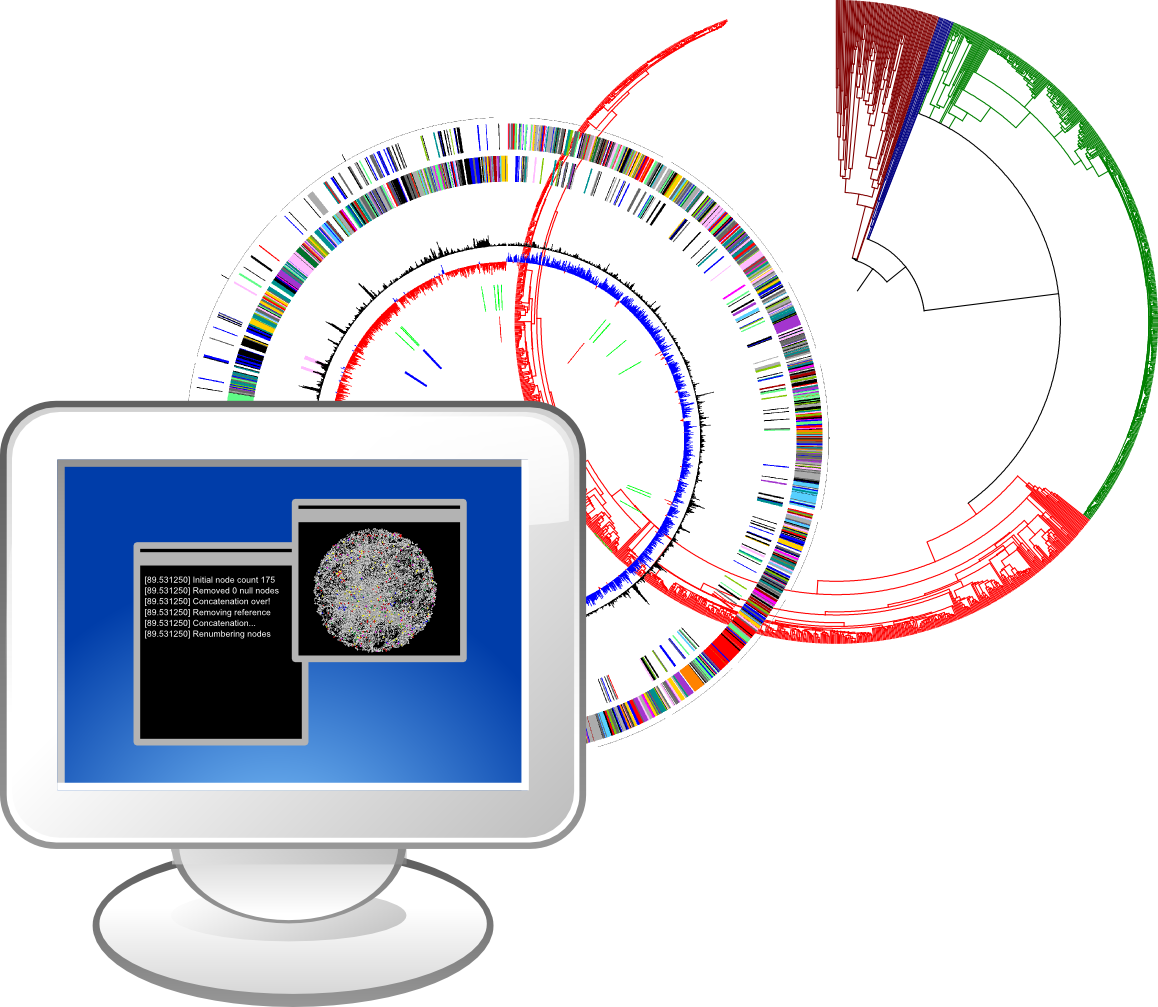
The development of modern biological sciences is tightly linked to the development of computers. As a matter of fact, the 'fathers' of computational science (Turing and von Neumann) already used the first computers to solve biological problems. Many biological questions can only be answered with the help of computers. Thus, training life scientists to use computers to analyse biological data is paramount. Bioinformatics is, in simple words, the use of computers to approach biological questions. It is a broad discipline that includes the use and development of software to analyse biological data, as well as the manipulation of vast amounts of data to extract biologically meaningful information. In recent years, bioinformatics has been crucial in the field of genomics. During the last two decades the amount of genomic sequences available, as well as functional data such as gene expression and chromatin structure, has grown to astronomical levels. Nowadays, the study of the structure, function and evolution of genomes can only be approached with appropriate computational tools.
This module aims to provide the student with a basic toolkit to approach the analysis of genome data, as well as an adequate theoretical framework. The emphasis of the module is on problem-based-learning; each topic is introduced by a lecture followed by a supervised session in the PC laboratory in which students follow detailed instructions that allow them to work through example datasets in order to understand and learn how to use and interpret commonly used methods. The sessions are supported by extensive documentation with guidance on further student-directed learning. Some familiarity with computers is desirable, but the documentation is written such that students with no computational background can follow the instructions. All software used is Open Source and students can download, install and run in their own computers. Students will then be able to enhance their skills in their own private study.
Learning outcomes:
To pass this module, students will need to be able to:
1. be competent in the use of standard command-line bioinformatics tools;
2. be able to build and search DNA databases;
3. understand the principles and practical applications of commonly-used DNA sequence analysis algorithms;
4. demonstrate the ability to process and analyse gene expression and epigenetic data;
5. demonstrate competence in the use of tools to assemble and annotate genomes;
6. demonstrate competence in functional annotation methods;
7. have a good appreciation of the statistical methodologies upon which different bioinformatics algorithms are based.
This module aims to provide the student with a basic toolkit to approach the analysis of genome data, as well as an adequate theoretical framework. The emphasis of the module is on problem-based-learning; each topic is introduced by a lecture followed by a supervised session in the PC laboratory in which students follow detailed instructions that allow them to work through example datasets in order to understand and learn how to use and interpret commonly used methods. The sessions are supported by extensive documentation with guidance on further student-directed learning. Some familiarity with computers is desirable, but the documentation is written such that students with no computational background can follow the instructions. All software used is Open Source and students can download, install and run in their own computers. Students will then be able to enhance their skills in their own private study.
Learning outcomes:
To pass this module, students will need to be able to:
1. be competent in the use of standard command-line bioinformatics tools;
2. be able to build and search DNA databases;
3. understand the principles and practical applications of commonly-used DNA sequence analysis algorithms;
4. demonstrate the ability to process and analyse gene expression and epigenetic data;
5. demonstrate competence in the use of tools to assemble and annotate genomes;
6. demonstrate competence in functional annotation methods;
7. have a good appreciation of the statistical methodologies upon which different bioinformatics algorithms are based.
- Module Supervisor: Antonio Marco
Category: Final Year Undergraduate